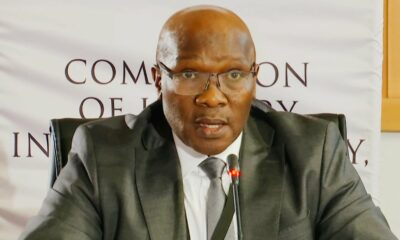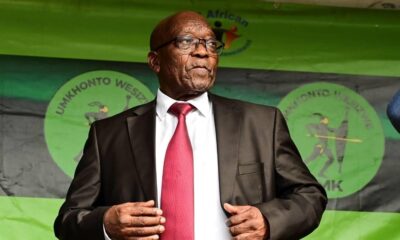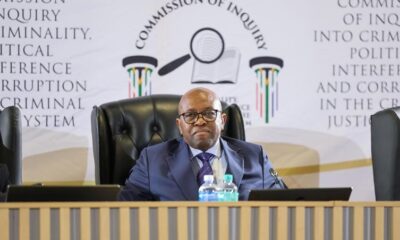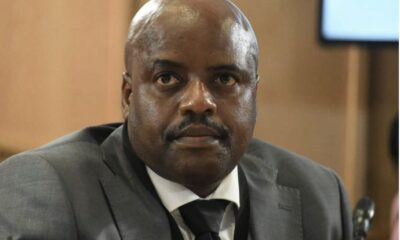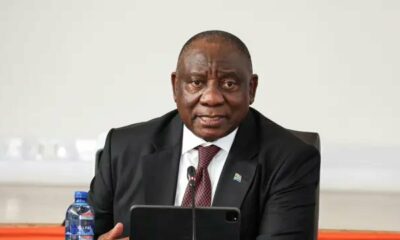News
Senzo Mchunu Says He Ordered Recordings After Feeling Threatened by KZN Police Commissioner
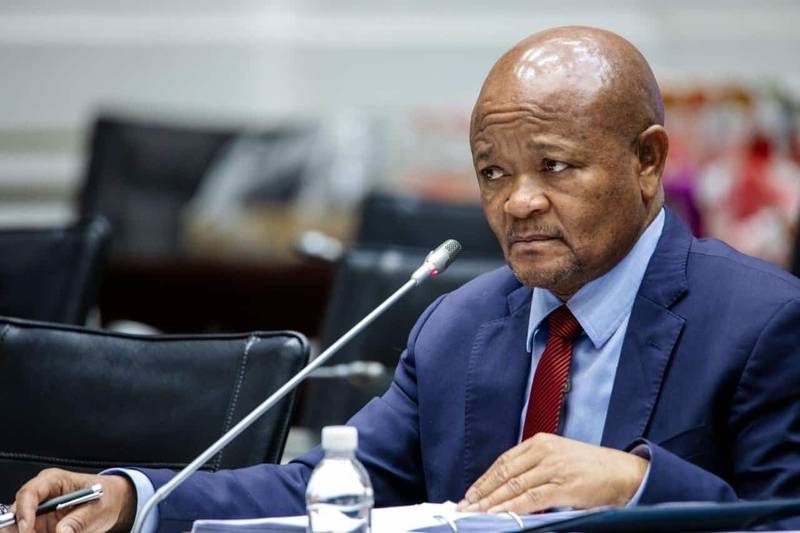
Mchunu Claims He Ordered Recordings After Feeling Threatened by KZN Commissioner
The growing standoff between suspended Police Minister Senzo Mchunu and KwaZulu-Natal Police Commissioner Lieutenant General Nhlanhla Mkhwanazi has spilled into Parliament, with claims of threats, secret recordings and political interference shaping one of the most heated testimonies in recent memory.
Appearing before Parliament’s ad hoc committee probing allegations of corruption and political meddling in the police service, Mchunu said he instructed his chief of staff, Cedrick Nkabinde, to record conversations with Mkhwanazi after feeling personally threatened.
Fear After the Fallout Over the PKTT
At the centre of the dispute is the disbandment of the Political Killings Task Team (PKTT) a specialised unit created to deal with deadly political violence in KwaZulu-Natal. The unit has long been seen as crucial in tackling politically linked assassinations, particularly in ANC structures.
Mkhwanazi told the committee in an earlier sitting that Mchunu had moved to dissolve the unit without proper consultation or understanding of its work. Mchunu disputes this, saying the decision was within his mandate.
But the political temperature rose quickly.
“It Sounded Like a Threat”
Mchunu told evidence leader Advocate Norman Arends that warnings from his chief of staff about Mkhwanazi’s tone led to the decision to record discussions.
He recalled a WhatsApp voice note allegedly involving Mkhwanazi, where the commissioner was said to have threatened to “fight back” over the PKTT matter.
“When he [Nkabinde] told me about this, I saw it as a threat,” Mchunu testified.
He said he worried that Mkhwanazi or others could retaliate by digging up old political history or using it as leverage.
“In this context, it becomes a weapon… ‘Don’t do this, because if you do, I’ll go back and dig up what you did wrong,’” Mchunu said.
“I don’t think people should assume anything I did was unlawful it just isn’t.”
Asked whether Nkabinde was in the habit of recording people, Mchunu said only the fear of retaliation prompted it.
“I thought there might be a need to record,” he said, adding that he viewed the situation as an “inside threat.”
A Meeting That Never Happened
Adv Arends pressed Mchunu on why he never met Mkhwanazi privately, despite repeated requests from the commissioner to discuss police matters.
Mchunu said he had intended to meet him but ultimately chose not to after the alleged threats surfaced.
“I wanted to meet General Mkhwanazi privately, but it just did not happen,” he said.
Political Subtext and Public Reaction
The testimony has added new fuel to speculation about deep internal fractures in the state security cluster, particularly in KwaZulu-Natal where political assassinations remain a national crisis.
Social media reaction has been split:
-
Some see Mchunu’s comments as self-preservation dressed as prudence, arguing that dissolving the PKTT without wide consultation points to interference.
-
Others believe he is being targeted by officials inside the police who fear oversight.
For many South Africans, the case is yet another reminder of how political power struggles often play out behind closed doors, with elite tensions overshadowing community safety.
What Happens Next?
Mchunu is currently on special leave while investigations into his conduct continue. He insists his decisions were lawful and necessary.
Mkhwanazi, meanwhile, has maintained that the PKTT was effective and should not have been tampered with.
The recordings mentioned by Mchunu may yet be brought into the inquiry and could become a key part of the political drama unfolding in Parliament.
One thing is clear: the trust between two powerful figures in South Africa’s security structure has broken down completely, and the consequences are spilling into public view.
{Source: IOL}
Follow Joburg ETC on Facebook, Twitter , TikTok and Instagram
For more News in Johannesburg, visit joburgetc.com

